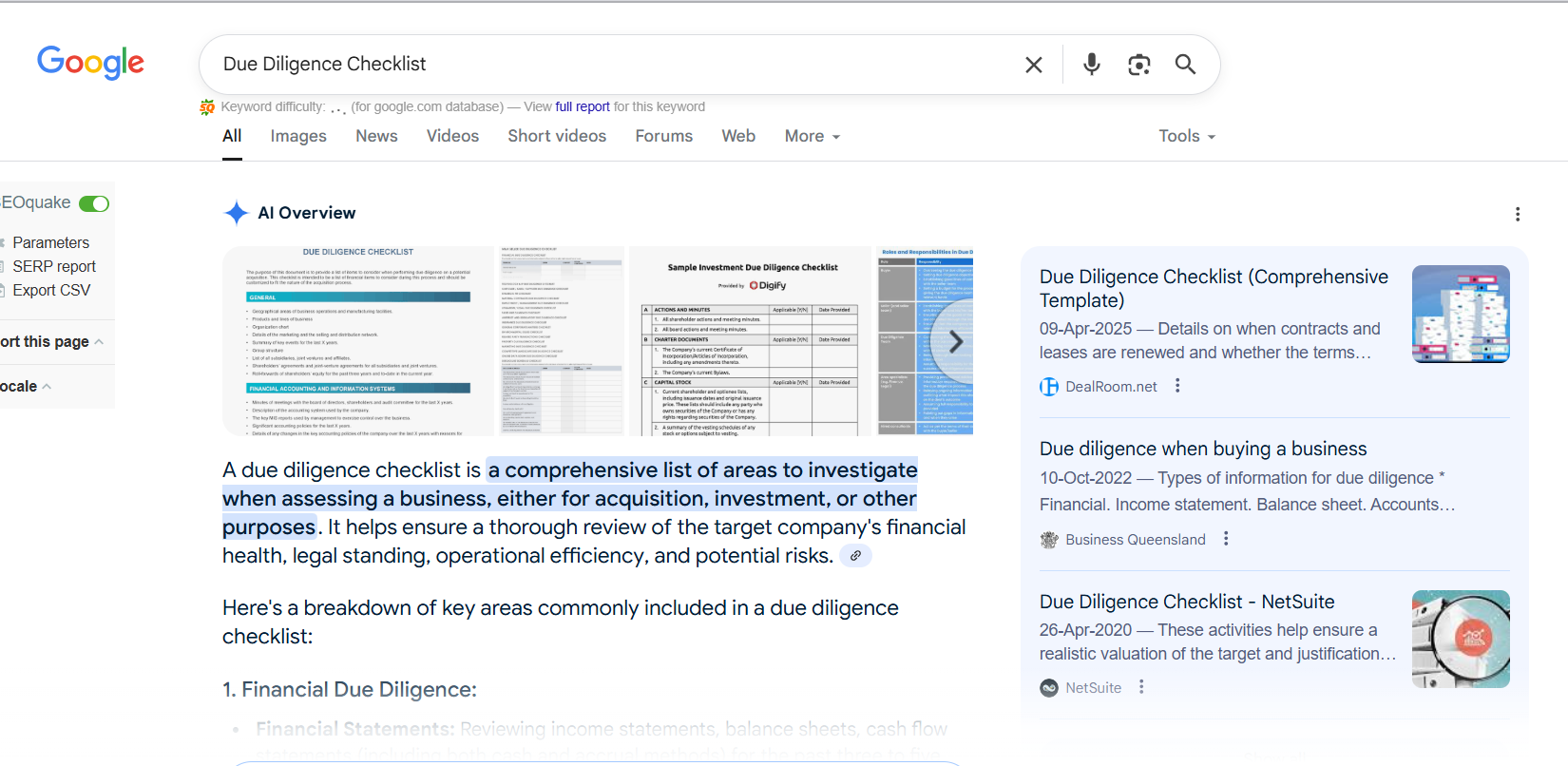How to Run a Land-Use Due Diligence Checklist Before Buying Property
Purchasing land is an exciting step, whether you plan to build, invest, or hold it for the future. But skipping proper due diligence can cost thousands or even halt a project entirely. A land-use due diligence checklist ensures you understand the property’s legal, environmental, and physical realities before committing.
At JDJ Consulting Group, we guide buyers, developers, and investors through each step. Our goal is to make the process clear, manageable, and risk-free.
Land-Use Due Diligence Flow
Source: Adapted from EPA Brownfields Guidance
The Foundation of Land-Use Due Diligence
Land-use due diligence is the backbone of any successful property investment. It is the process of investigating a property thoroughly before purchase.

Doing so protects you from hidden problems, such as legal restrictions or unexpected costs.
The main components of due diligence include:
Legal and administrative checks to confirm ownership and permitted land uses.
Environmental and physical assessments to ensure the property is safe and buildable.
Municipal and infrastructure evaluations to verify utilities, access, and local development plans.
Completing these steps early gives investors confidence. It also ensures that any project will be feasible and profitable in the long run.
Legal and Administrative Considerations
The first step in land-use due diligence is understanding the property’s legal and administrative status. This prevents disputes, fines, or restrictions after purchase.
Key Areas to Focus On
Title Verification and Ownership History: Every property has a history. You need to confirm who legally owns the land and check for any claims or encumbrances. Liens, unpaid taxes, or boundary disputes can cause major problems if left unchecked.
Zoning and Land-Use Regulations: Local governments classify land into zones. Each zone allows specific types of use, such as residential, commercial, or industrial. Understanding current zoning and possible changes ensures your intended use is permitted.
Easements and Access Rights: Easements allow others to use your land for a specific purpose, like a utility line or a shared driveway. Access rights confirm you can legally reach your property. Both factors can affect your project plans.
Legal Checklist Table
| Task | Purpose | Recommended Action |
|---|---|---|
| Title Search | Confirm ownership | Check county records or hire a consultant |
| Zoning Verification | Ensure intended use | Review local zoning maps and ordinances |
| Easement Review | Understand land rights | Analyze deeds and survey reports |
By completing these checks, you protect your investment and avoid costly surprises.
Environmental and Physical Assessments
Once legal matters are clear, the next step is evaluating the property’s physical and environmental condition. Ignoring this can lead to construction delays, fines, or expensive remediation.
Key Assessments
Environmental Site Assessment (ESA)
Phase I: A review of historical records and visual inspections to detect potential contamination.
Phase II: Laboratory testing of soil, water, and materials if Phase I indicates risks.
Topographical and Soil Analysis
Determines the land’s slope, drainage, and soil strength.
Identifies whether additional engineering or grading will be needed.
Flood Zone and Natural Hazard Mapping
Checks if the property lies in flood-prone areas or is exposed to other hazards.
Helps plan for insurance and structural requirements.
Environmental Assessment Checklist Table
| Assessment | Why It Matters | Suggested Approach |
|---|---|---|
| Phase I ESA | Detect contamination risks | Hire certified environmental consultant |
| Soil Testing | Confirm land stability | Conduct lab testing and geotechnical analysis |
| Flood Zone Check | Reduce natural hazard risk | Use FEMA maps and local hazard data |
Thorough assessments allow investors to plan projects accurately and prevent unexpected costs.
Municipal and Infrastructure Evaluations
After confirming land conditions, the next step is to test the property’s municipal context and infrastructure. This step ensures the land can support your intended project and avoids surprises that could delay development.
At JDJ Consulting Group, we help clients analyze local services, access, and development plans. We ensure every property is ready for investment.

Key Areas to Evaluate
Utility Availability
Check whether the property has access to essential utilities, including water, electricity, gas.
Confirm the capacity of these services to handle your planned development.
Transportation and Accessibility
Assess proximity to major roads, highways, and public transportation.
Evaluate whether access points are convenient for construction vehicles and future occupants.
Community and Municipal Plans
Review city or county master plans, redevelopment projects, and zoning updates.
Consider how future projects may affect your property’s value or permissible use.
Permits and Local Approvals
Identify required permits for construction or land use changes.
Understand the process and timeline for approvals to avoid delays.
Infrastructure Evaluation Table
| Infrastructure Element | Why It Matters | Recommended Action |
|---|---|---|
| Utilities (water, electricity, sewer) | Ensure property is build-ready | Contact utility providers and review municipal records |
| Roads & Transportation | Confirm accessibility | Assess traffic, road quality, and potential improvements |
| Permits & Approvals | Avoid construction delays | Review local regulations and meet with planning departments |
| Community Plans | Understand development context | Check municipal master plans and future zoning updates |
Why This Step Is Critical
Without proper infrastructure evaluation, even a legally sound property can face delays. By reviewing these factors early, you can:
By reviewing these factors early, you can:
Ensure the property supports your intended development.
Avoid unexpected construction or compliance issues.
Accurately forecast project timelines and budgets.
Financial and Market Feasibility
Once legal and municipal factors are clear, the next step is evaluating financial feasibility. This ensures the property makes sense as an investment before you commit.
At JDJ Consulting Group, we guide clients through realistic cost projections, and market trends. This step reduces financial risk and improves project planning.
Due Diligence Cost Estimator
Source: Urban Land Institute (ULI) Cost Benchmark Report
Cost Analysis and Budgeting
Before buying land, estimate all costs to avoid surprises. Key considerations include:
Acquisition Costs
Purchase price, closing fees, and legal expenses.
Taxes, insurance, and title transfer costs.
Development and Construction Costs
Site preparation, grading, and infrastructure improvements.
Building materials, labor, and professional services.
Ongoing Costs
Maintenance, utilities, and property management.
Contingency for unexpected expenses.
Example Table – Financial Checklist
| Cost Category | Why It Matters | Suggested Action |
|---|---|---|
| Acquisition | Confirm total upfront cost | Review purchase agreement and closing documents |
| Development | Plan construction budget | Consult engineers and contractors for estimates |
| Contingency | Prepare for unexpected expenses | Set aside 10-15% of total budget |
| Ongoing Costs | Ensure long-term viability | Estimate utilities, maintenance, and management fees |
Market Research and Demand Assessment
Understanding the local real estate market helps you predict returns and make informed decisions.
Local Market Trends
Check property values, sales history, and neighborhood growth.
Identify rising or declining areas to guide investment.
Comparable Property Analysis
Compare similar properties in location, size, and zoning.
Helps estimate fair price and potential resale value.
Target Demographics
Identify potential buyers or tenants.
Consider income levels, lifestyle, and needs for your development.
Why Financial and Market Feasibility Matters
By analyzing costs and market demand, you can:
Avoid overpaying for property.
Forecast realistic returns on investment.
Plan development that meets community needs and market trends.
Risk Management and Compliance
Even after confirming legal, environmental, and financial feasibility, every property carries risks. Proper risk management protects your investment and prevents costly mistakes. At JDJ Consulting Group, we help clients identify potential threats and plan strategies to mitigate them.

Legal and Regulatory Compliance
Understanding and complying with local laws is crucial. Noncompliance can lead to fines, project delays, or legal disputes.
Key considerations include:
Building Codes and Permit Requirements
Ensure construction plans meet all city regulations.
Obtain required permits before starting development.
Environmental Regulations
Comply with laws regarding land contamination, wetlands, and protected areas.
Conduct required environmental assessments to avoid fines.
Insurance and Liability
Assess coverage for property damage, construction risks, and natural disasters.
Protect yourself from potential lawsuits or accidents on site.
Compliance Checklist Table
| Risk Area | Why It Matters | Suggested Action |
|---|---|---|
| Building Codes | Avoid fines and delays | Review local building codes with JDJ Consulting experts |
| Environmental Laws | Prevent legal issues | Conduct ESA and check for protected zones |
| Permits | Ensure lawful construction | Apply for all required permits before starting work |
| Insurance | Reduce financial exposure | Obtain comprehensive coverage for property and construction |
Long-Term Risk Mitigation Strategies
Beyond immediate compliance, planning for future risks is essential. Consider:
Market Volatility and Economic Factors
Property values can fluctuate with economic conditions.
Develop flexible budgets and conservative projections.
Political and Policy Changes
Local regulations or zoning policies may change.
Stay informed and adjust plans accordingly.
Exit Strategies and Contingency Planning
Decide in advance whether you might sell, lease, or repurpose the property.
Maintain financial flexibility to adapt if circumstances change.
By addressing these risks, you can safeguard your investment and make informed decisions.
JDJ Consulting Group’s Role in Land Acquisition Due Diligence
Buying land and planning development can be complex. JDJ Consulting Group helps clients navigate every step of the due diligence process. Our services ensure you make informed decisions and avoid costly mistakes.
We combine technical expertise to guide investors, developers, and homeowners from start to finish.
Expert Advisory Services
JDJ Consulting Group provides comprehensive support throughout the due diligence process. Key offerings include:
Comprehensive Due Diligence Reports
Detailed analyses covering legal, environmental, and municipal factors.
Clear recommendations to help clients make confident decisions.
Risk Assessment and Management Plans
Identify potential risks before purchase.
Develop strategies to minimize legal, financial, and environmental exposure.
Regulatory Compliance Assistance
Navigate local zoning laws, building codes, and permit requirements.
Reduce delays by ensuring all documentation meets municipal standards.
Advisory Services Table
| Service | Benefit | How JDJ Helps |
|---|---|---|
| Due Diligence Report | Informed decision-making | Provides detailed, property-specific reports |
| Risk Management | Reduce investment risks | Identifies risks and develops mitigation plans |
| Regulatory Compliance | Avoid fines & delays | Guides clients through permits and local regulations |
Strategic Planning and Development Support
Beyond advisory, JDJ Consulting Group supports the practical aspects of property development.
Site Selection and Feasibility Studies
Help clients choose the right property based on investment goals.
Evaluate land for development potential and legal constraints.
Project Management and Coordination
Coordinate contractors, engineers, and municipal agencies.
Keep projects on schedule and within budget.
Stakeholder Engagement and Negotiation
Liaise with city officials, neighbors, and other stakeholders.
Facilitate negotiations to prevent conflicts and ensure smooth approvals.
By combining guidance with support, our firm ensures every investment is financially sound.
Conclusion
Conducting a thorough land-use due diligence checklist is essential before purchasing any property. Skipping even one step can lead to unexpected costs, legal disputes, or project delays. From legal verification to assessments, municipal evaluation, and financial analysis, every detail matters.
Key Takeaways
Legal Checks: Confirm ownership, zoning, and easements.
Environmental Assessments: Test soil, flood zones, and contamination risks.
Infrastructure Review: Verify utilities, access, and municipal plans.
Financial Feasibility: Analyze costs, market trends, and ROI potential.
Risk Management: Mitigate legal, financial, and environmental risks.
Take Action with JDJ Consulting Group
Purchasing property is a major decision. Working with experienced consultants reduces uncertainty and maximizes value. JDJ Consulting Group provides:
Personalized due diligence reports
Risk management strategies
Regulatory compliance guidance
Project planning and development support
Start your land investment with confidence. Contact JDJ Consulting Group today to schedule a consultation. Make sure your property decision is informed, safe, and profitable. Call our consulting firm at (818) 233-0750 to your due diligence report prepared from our experts.
Risks Found in Land-Use Due Diligence
Source: National Association of Realtors (NAR) 2024 Survey
Need Expert Help With Land-Use Due Diligence?
JDJ Consulting Group guides buyers, developers, and investors through every stage of land-use due diligence. From zoning analysis to permit expediting, we ensure your project is set up for success.
Talk to a Consultant TodayFAQs on Land-Use Due Diligence Checklist
What should be included in a due diligence checklist?
A land-use due diligence checklist should cover all major factors:
Legal ownership and title history
Zoning and land-use regulations
Environmental risks like flooding or contamination
Easements and access rights
Utility connections and infrastructure
Financial feasibility and return potential
These steps give a clear picture before you purchase.
What is a diligence checklist?
A diligence checklist is a step-by-step tool for property review. It organizes legal, financial, and environmental checks. This ensures no detail gets missed during the buying process.
What is the basic of due diligence?
Due diligence is about verifying three essentials:
Clear ownership and title
Permitted land uses under zoning rules
Safety, stability, and financial value of the property
How do I perform due diligence?
The process works best in stages:
Run a title and zoning search.
Review easements and road access.
Order environmental assessments.
Check utilities like water and power.
Study project costs and returns.
Consultants often manage these steps for buyers.
What are the three elements of due diligence?
The three core elements include:
Legal – Title, zoning, and permits
Financial – Costs, ROI, and market conditions
Operational – Infrastructure and land feasibility
Together, these provide a full review.
What are the 4 P’s of due diligence?
The 4 P’s often used in real estate are:
People – Owners and stakeholders
Process – How the deal moves forward
Performance – Financial return
Property – Physical and legal review
What are the three P’s of due diligence?
The three P’s give a simpler breakdown:
People – Verify ownership and parties involved
Property – Inspect physical and legal details
Potential – Estimate growth and value
What is a CDD checklist?
A CDD checklist means Customer Due Diligence. In property deals, it confirms identities of buyers and sellers. It prevents fraud and ensures legal compliance during transactions.
Why is environmental due diligence important?
Environmental checks protect buyers from hidden liabilities. These reviews look for:
Contaminated soil or water
Flood risks and wildfire zones
Protected habitats
Discovering issues early avoids costly surprises later.
How does zoning impact due diligence?
Zoning decides what you can build. If your project doesn’t fit, you may need:
A variance
A special permit
A rezoning request
Checking zoning early prevents delays.
What role do easements play in due diligence?
Easements give others legal rights to use your land. Examples include:
Utility lines
Shared driveways
Access roads
Knowing them helps avoid restrictions on future projects.
How do infrastructure checks affect property value?
Infrastructure determines usability. Always review:
Roads and transit connections
Power and internet service
Water and sewage systems
Good infrastructure usually raises land value.
Can due diligence help avoid financial loss?
Yes. A thorough checklist uncovers risks before you commit. Examples include:
Liens or legal disputes
Soil contamination
Missing utilities
These findings let you renegotiate or walk away.
How long does land-use due diligence take?
The timeline depends on property type.
Simple checks: a few weeks
Complex projects: several months
Hiring consultants can help speed the process.
Why should I hire a consultant for due diligence?
Consultants add expertise and local insight. They:
Spot risks buyers may miss
Navigate zoning and permit issues
Coordinate environmental and legal reviews
Deliver reports to guide decisions
Groups like JDJ Consulting save time, reduce risk, and protect investments.
Error: Contact form not found.


0 Responses